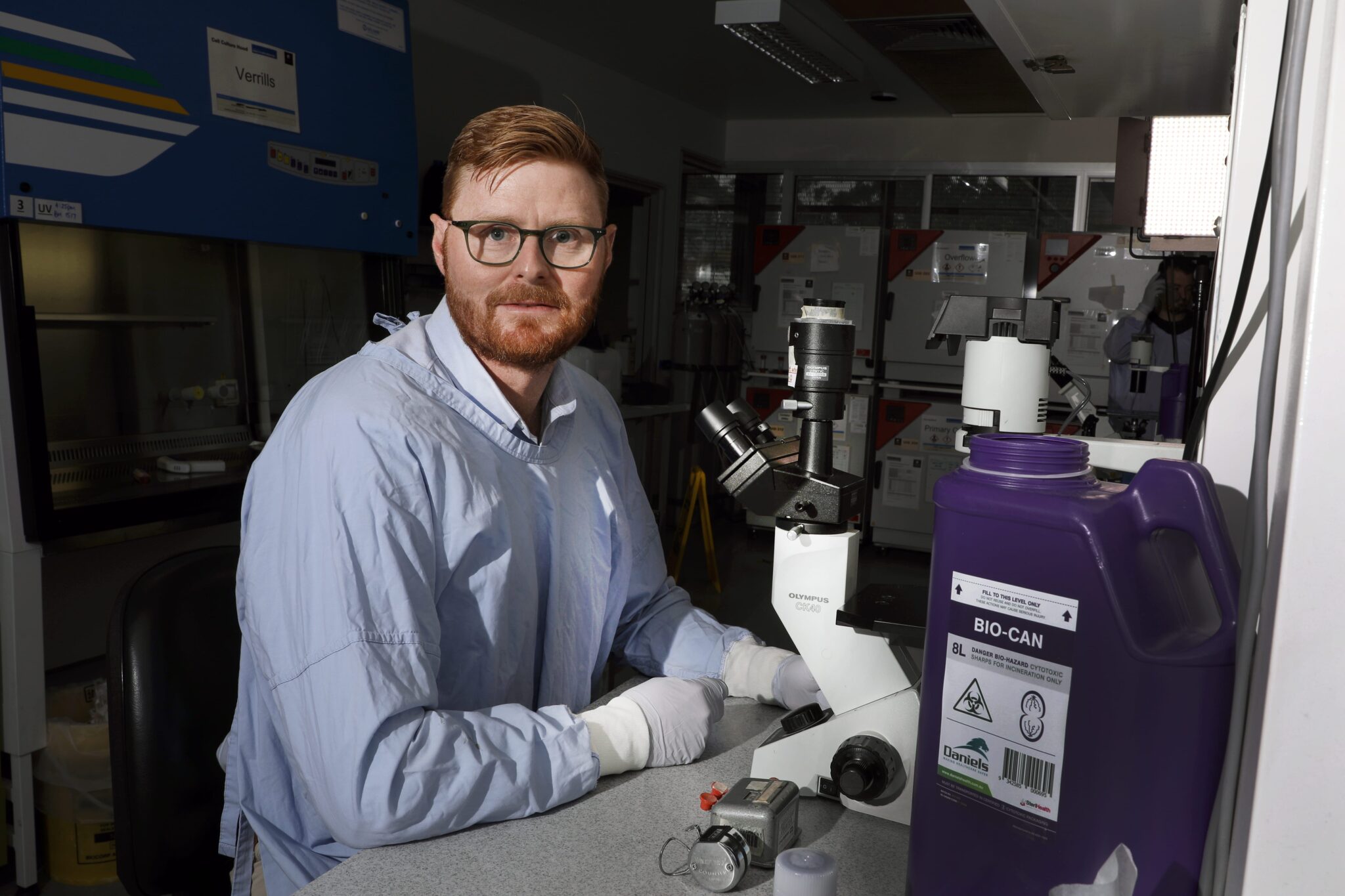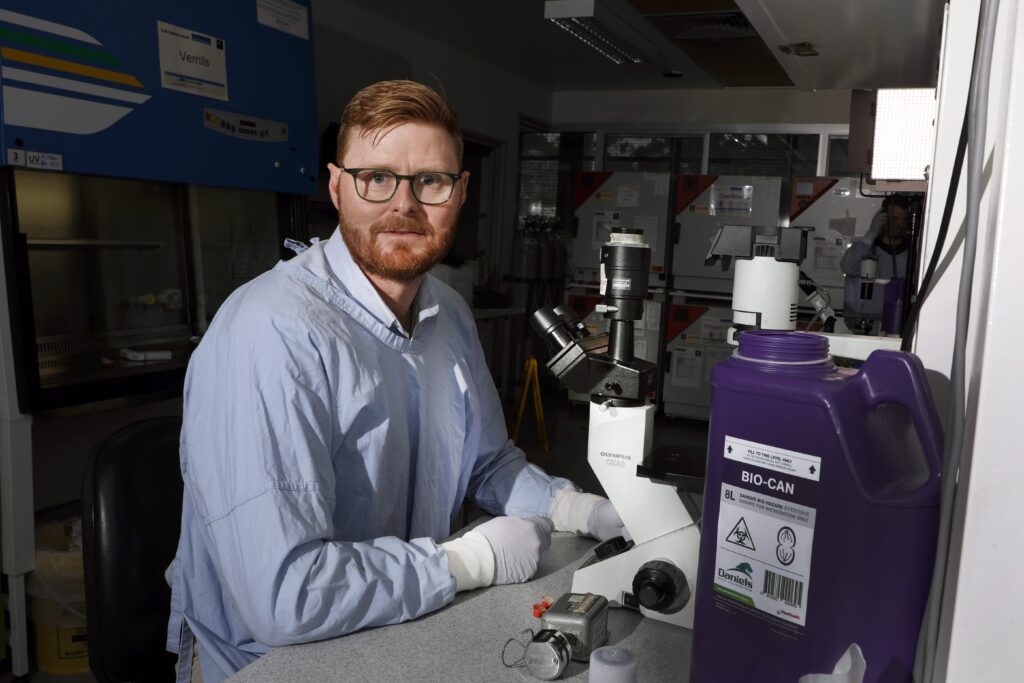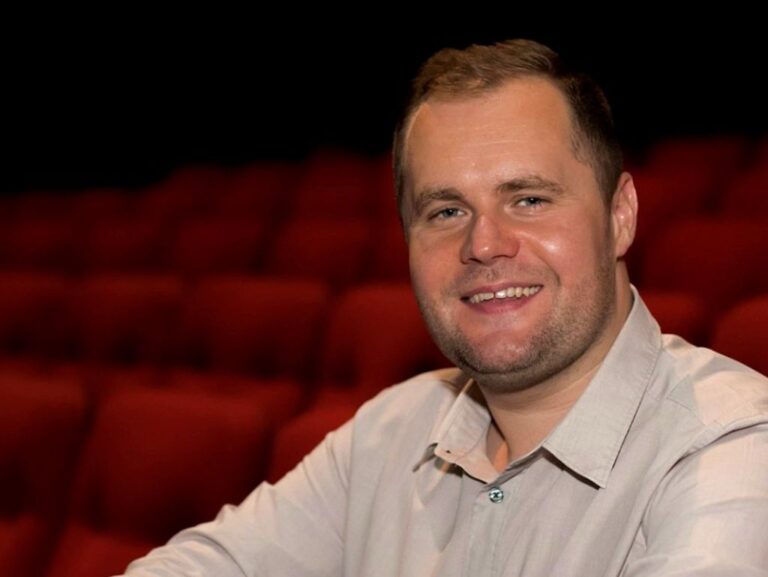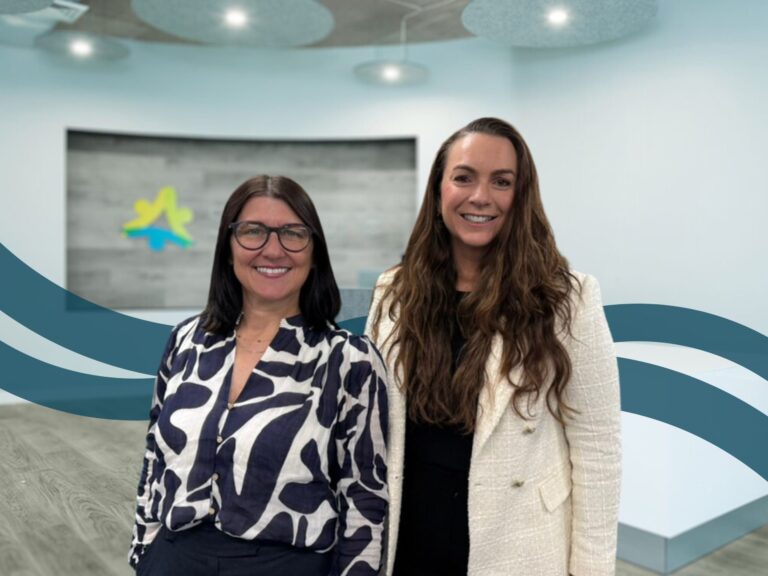Esteemed cancer researcher and charity advocate, Dr Matthew Dun, has been acknowledged for his dedication to improving cancer survival outcomes, with a 2020 Young Tall Poppy science Award.
Matthew, a researcher from The University of Newcastle and The Hunter Medical Research Institute (HMRI), was selected by the Australian Institute of Policy and Science (AIPS) as one of the country’s outstanding early career researchers for his contribution to cancer research.
He focuses on cancers with extremely poor outcomes. Matthew’s laboratory is one of only a handful internationally that conducts quantitative phosphoproteomics in tumours, a technique that attempts to identify novel treatment targets and drug combinations to improve survival.
The cellular processes and resulting proteins that activate tumour growth can differ from person to person.
Applying biochemistry and cell biology expertise, Matthew works with clinical and pharmaceutical industry partners to design tailored therapies.
He said this specialised approach enabled detailed profiling of specific types of tumours and the highly individualised way they manifested in different people.
“Cancers are not all the same, so the more precisely a drug can target tumour cells the more effective the therapy is, and the fewer side effects patients will suffer,” he said.
Translating his work from discovery to identification of new therapeutic strategies for cancer patients is helping to improve the outlook for children with the brain cancer diffuse intrinsic pontine glioma (DIPG) and will soon move into clinical trials for leukaemia patients.
His quest to find better cancer treatments is a very personal pursuit for him and his family.
Experiencing the loss of a child due to DIPG motivated Matthew and his extended family to form the charity, Run DPG, which advocates for this rare cancer and raises much-needed funds for research into its treatment.
In addition to running his own charity, he is a passionate advocate for enhanced investment in childhood cancers and has spoken publicly through the media and at community events such as the Tour de Cure and Build for a Cure.
He said the Award meant a great deal to him, but his focus remained on outcomes for the patient.
“I am honoured to receive this Award, particularly given the calibre of those who have gone before me.”
“As a recipient of this Award, I’ll be even better placed to advocate for the importance of this research and continue to improve treatments for kids with cancer.”
University of Newcastle Pro Vice-Chancellor (Academic Excellence), Professor Jennifer Milam, said the Award was well deserved.
“Dr Dun and his team have shown incredible dedication to improving the lives of people with cancer, particularly children,” she said.
“One of the University’s priorities is to deliver better health outcomes for our communities and the work of Dr Dun certainly demonstrates that commitment.
“This Award will provide a great platform for Dr Dun to advocate for the importance of cancer research and to highlight the quality of health and medical research we do here at The University of Newcastle and HMRI.”
Matthew joins a broader alumni community of 800-plus scientists who have been acknowledged for their scientific and communication excellence through the AIPS Tall Poppy Awards.
IMAGE | Dr Matthew Dun becomes the Young Tall Poppy Science Award winner for 2020.






